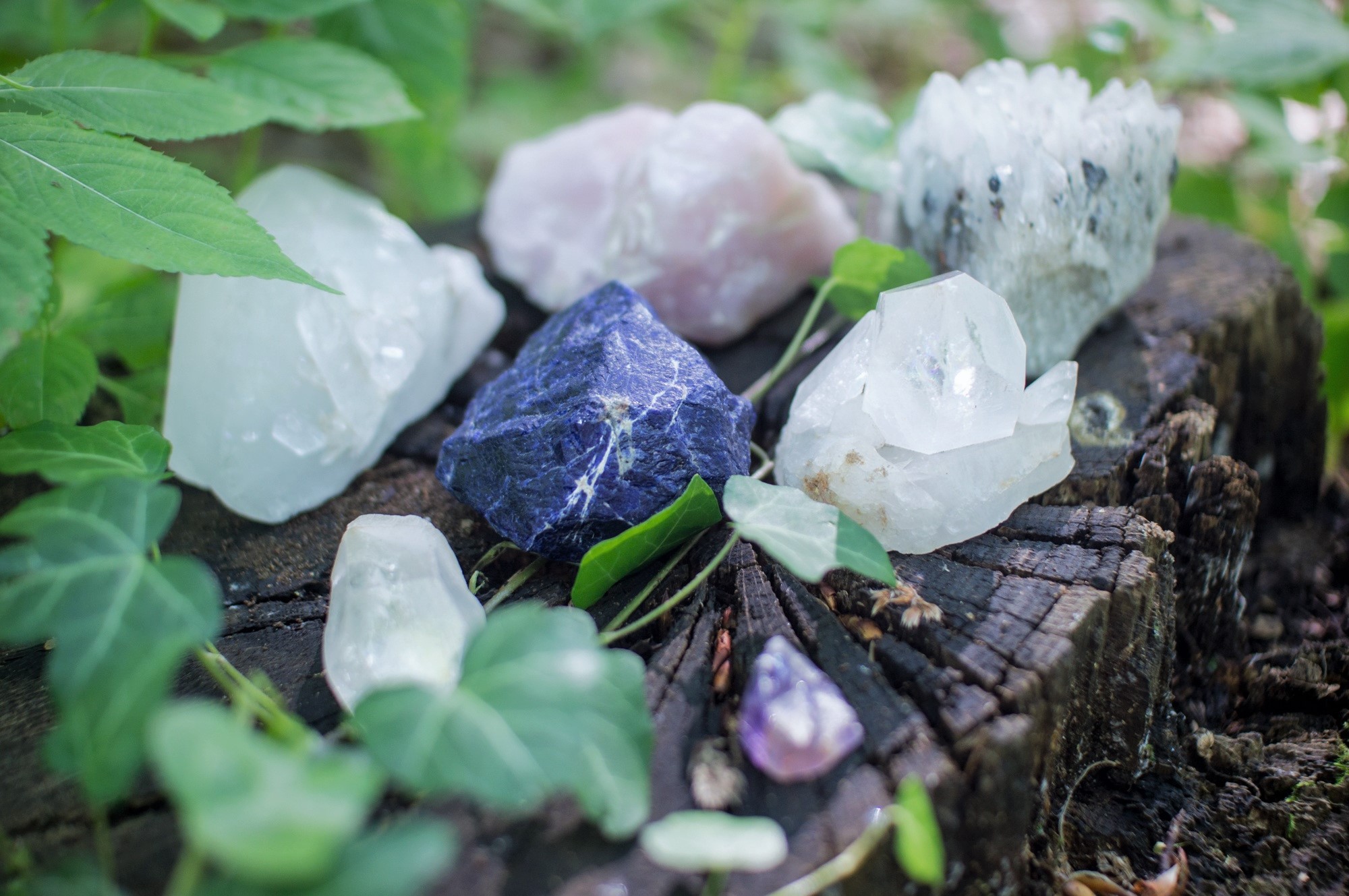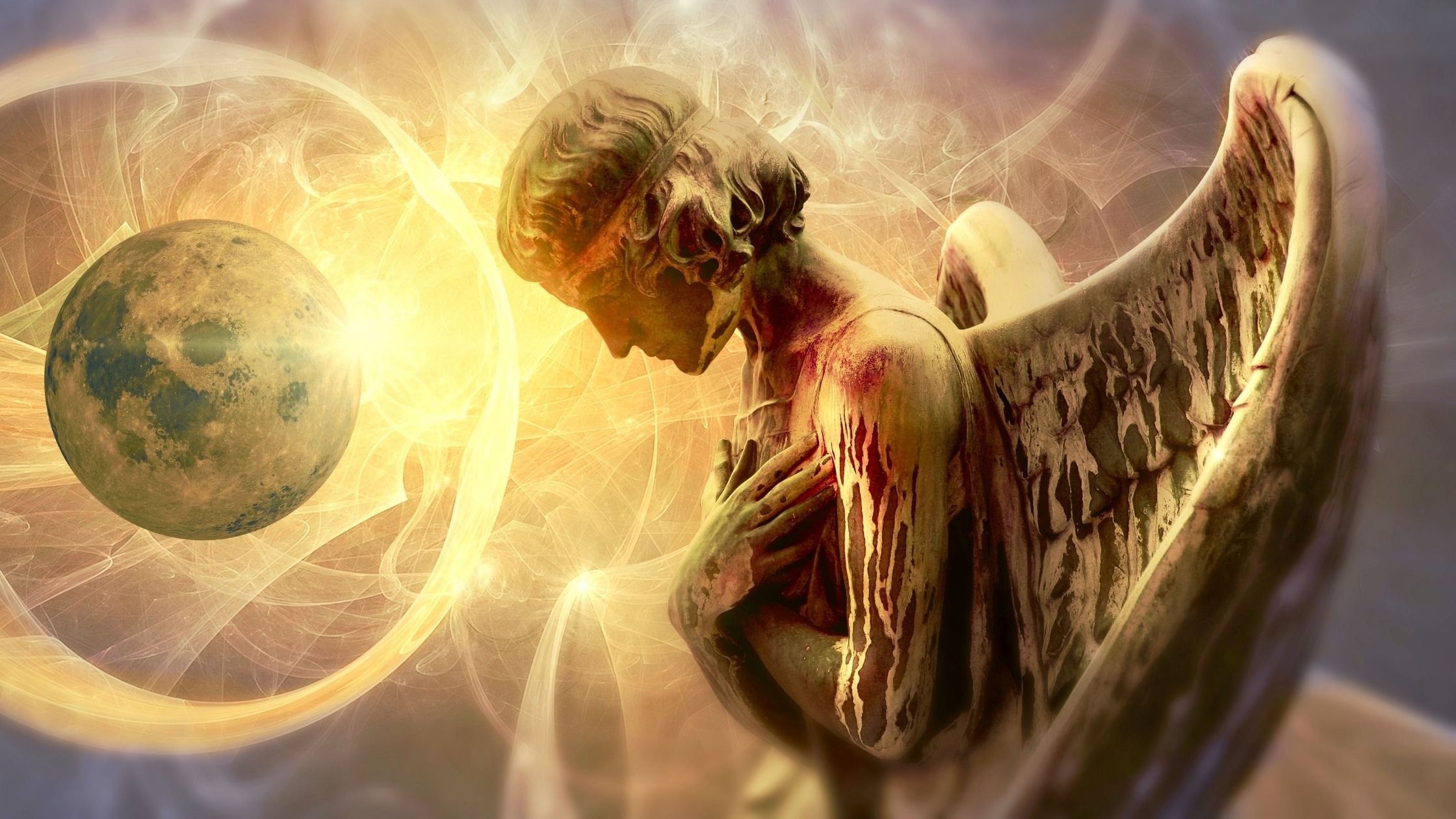How We Lie About Our Spiritual Health
We’re so obsessed with our bodies in this material world that we’ve forgotten about our spiritual health. Culture fixates on appearance so much that any aspect of our self-care that’s invisible to the eye is forgotten.
Spirituality is no different. How do you see with your eyes what’s meant to be understood with intuition?
We forget our spiritual health for many reasons, but the lies we tell ourselves are the worst.
Here’s how (and why) we lie to ourselves about our spiritual health.
We Believe Material Growth Is More Important
You Lie to Yourself That Wealth is Best
No matter how spiritual a person may be, most will see their material needs as a more urgent concern. This makes a lot of sense in some situations but is ludicrous for others.
Religions often inspire awe in their believers for those who live or take vows of poverty. That’s because a simple life usually means you prioritize meaningful activities, like worship or spending time with your family.
Those who live non-material lives tend to focus on mindfulness. Their goal isn’t to acquire more wealth but to have better relationships, pursue their purpose, and get closer to the divine. They are, in essence, on a spiritual journey instead of a material one.
How to Overcome Materialism
If you struggle with materialism, that doesn’t mean you live like a monk. Instead, consider decluttering your approach to life: instead of working overtime so you can live in a large house, choose a more modest home and spend the time saved with the people you care about.
You’ll also benefit greatly by taking time out of your day or week to tend to your spirituality. Consider your ancestral, cultural, or personal wishes and select a spiritual path that makes sense to you.
That could mean meditation, rituals, or attendance at a local place of worship. It’s your choice. Make it a meaningful one.
We Live With No Purpose
You Lie to Yourself That There’s No Reason for You to Exist
One of the greatest benefits of spirituality is that it gives you purpose. This isn’t a goal or a dream career, but a holistic understanding of who you are and what you should be doing with your life.
Unfortunately, the way most people orient themselves is solely for their own benefit or the immediate benefit of their families. There’s nothing wrong with this, as you should prioritize yourself and your loved ones, but that if you only work towards survival that’s all you’ll achieve in life.
A person with good spiritual health understands that they’re living out a divine purpose. That purpose frames their entire life to be one of good, despite their flaws, and they become part of a greater and more beautiful plan.
How to Develop a Purpose
But how do you develop a purpose which gives you a holistic framework? First, stop looking at your career as the focal point of your life. Your life is more complex and meaningful than what you do for a living, even if you happen to love it.
Parents and spouses also need to learn not to put all their attention on their loved ones. To make someone else the determining factor in your life’s purpose may seem meaningful in the moment, but people live and grow, and everyone needs their independence sometimes. If you create a co-dependent relationship to derive your own sense of meaning, you won’t be happy and neither will they.
Instead, develop an intention that can transcend everything you do. Most religions sum this up to “be a good person” but it can help others to determine a character trait, such as honesty or compassion, which they focus on as their guiding holistic purpose.
We Pretend There’s Nothing Divine
You Lie to Yourself That Sacred Doesn’t Exist
Not every religion believes in god, but every proper spiritual path should inspire wonder about the universe. The reason you need wonder for your spiritual health is that it causes you to look towards something greater than yourself.
A lot of people are uncomfortable with this because they don’t like feeling small, but everyone has a natural inclination to idolize.
If you don’t have wonder for the divine, you’ll have wonder for a celebrity, another person, or yourself. When this happens, you will treat the idol of wonder as the ultimate source of authority. This is a good way to be manipulated or to manipulate others.
How to Not Be a Fanatic
You need to really examine your obsessions to figure this out for yourself. Is there someone who inspires undue respect and devotion? If it looks like a preteen girl’s shallow, unthinking fanaticism, then you’ve discovered a source of idolization.
Everything but the divine inspires this fanaticism if you make it your idol. When it comes down to it, idolization isn’t about appreciating divinity, but hoarding it. It’s a materialistic approach to value. You don’t believe there’s enough of the divine to go around so you try to grovel before your idol in any way you can.
Choose a higher calling than fanaticism. Honoring the divine is respecting the divine and being inspired by it.
We Act Without Virtue
You Lie to Yourself That Morality is Relative
Humans don’t have everything figured out, and our interpretation of the divine isn’t perfect. However, there’s absolute morality in this universe which means there’s a proper way to act.
When you act immorally, you’re damaging your soul. This impedes your spiritual growth and thus your spiritual health. It also hurts other people.
If you ignore the damage you do in this world, then your spiritual health suffers. It’s the same reason we consider criminals and the unjust as separate from everyone else – because they stop belonging to the community. When you’re without virtue, you no longer belong to the spiritual community either.
How to Discover Personal Virtue
What you need to do to act with virtue is to figure out what virtue means. There are different expressions of it worldwide. This is why it’s so important to have a holistic purpose. Once you know that, it’s easier to determine the virtues which represent that purpose.
Christianity has a lot of rules, but it could be summed up into one: love God. The actionable step is to “love others.” Any Christian should be able to understand what loving God means, but even Jesus had to give a virtue to go along with the holistic purpose so people knew how to act.
If you don’t already belong to a traditional religion or your spiritual path is ambiguous when it comes to virtue, take the time to sit down and really brainstorm how you can act out your holistic purpose in the world.
We Limit Our Potential
You Lie to Yourself That You Aren’t Extraordinary
Those who don’t care about spiritual health put a limit on how far they go in life. But the spiritual can envision a future for themselves without limits – even death!
Spirituality takes away the existential fear you experience every day. No matter your religious beliefs, you’re able to feel confident that what you do matters, so you’ll do more than just the bare minimum.
This broadens your opportunities and attracts positive energy into your life. You believe that you’re capable of pushing boundaries and trying new things. And isn’t that what makes life exciting?
How to Make Life Matter
Views on the afterlife differ, and not every spiritual path believes that your identity persists after death. However, someone with good spiritual health is a person who will be at peace with their eventual demise because they know that their potential was actualized while they were in this world.
A person with a scarcity mindset won’t push themselves to act with gratitude and charity. They’ll fold into themselves and fear making any sacrifices because they don’t believe that any action they take will matter more than survival.
That’s not a healthy way to live. When you’re scared to act, you’re scared to accept any future that comes your way. Everything is frightening and exhausting.
How do you make each day matter? You should live in the moment, but you should have an overall contribution to the world, your community, your family, and your self which compels you to make the most of every moment you have.
That’s how you die without regret.
Final Thoughts
Your spiritual health shouldn’t be forgotten. Make sure to check in at least once a month and ask yourself if you feel connected to the divine and have a holistic purpose.
When you start to live in doubt, you may be lying to yourself like the examples in this article, or you may have a lie particular to yourself which you need to confront.
It’s not easy tending to your spiritual health because of how invisible it can be, but it’s worth it. If you want to do more than just survive, tend to your spiritual needs and you’ll find yourself able to thrive.






